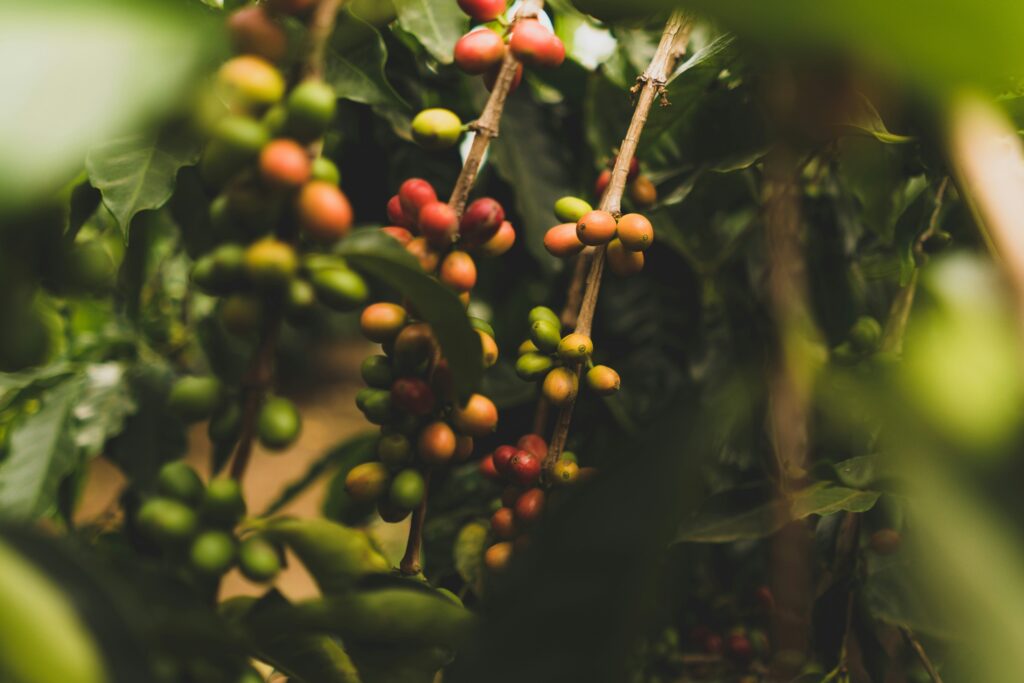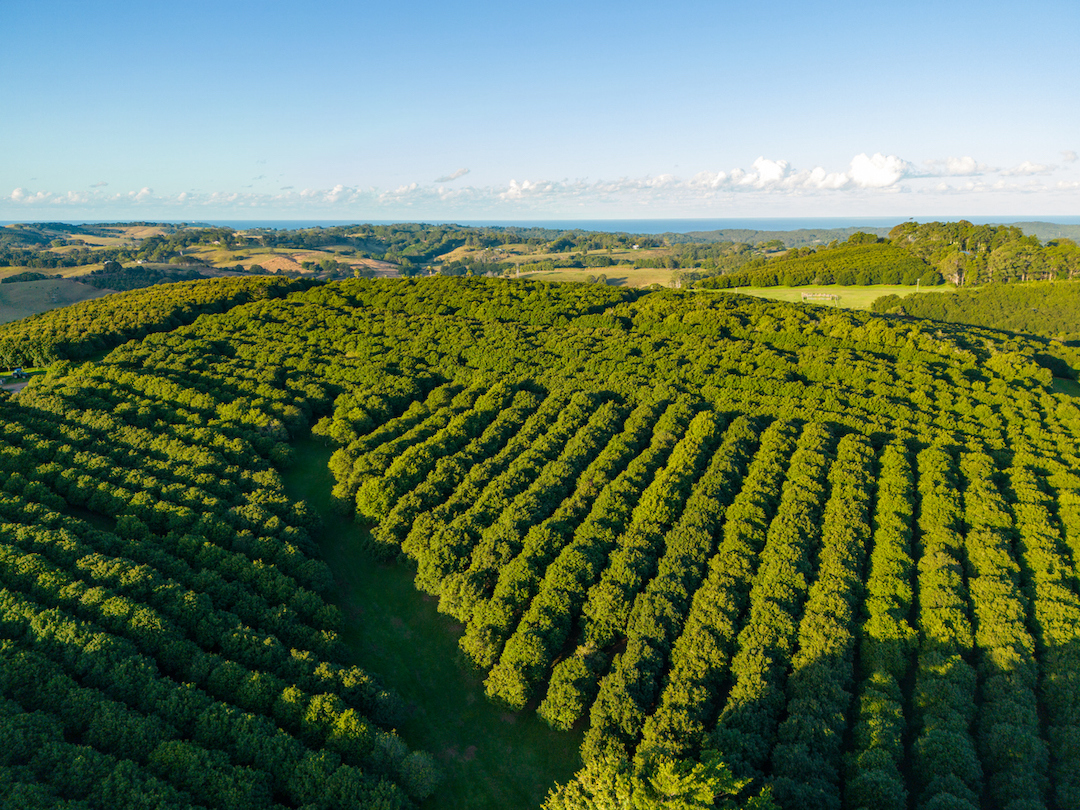This revolution is not led by tech moguls or mining giants but by passionate coffee growers and innovators.
As Australia’s emerging coffee industry rapidly gains recognition on the global stage, it offers a fresh perspective on quality, sustainability and the art of coffee production.
Australians have a profound love for coffee, with more than 6 billion cups consumed per year. This fact underscores not only the economic potential for domestic coffee production but also the deep-seated cultural affinity Australians have for their daily brew, setting the stage for an industry that seeks to tap into this vast and enthusiastic market.

The coffee bean market in Australia is worth $1 billion annually.
A unique taste of place
The coffee bean market in Australia is worth $1 billion annually, with an established industry consisting of around 50 commercial growers located between North Queensland, south-eastern Queensland and northern New South Wales.
These growers have successfully created a distinct and high-quality product that services small domestic, tourist and specialist export markets.
As the global coffee market evolves, consumers increasingly seek unique and high-quality products that tell a story. Australian coffee fits this niche perfectly, offering distinctive flavors rooted in the country’s unique terroir.
This terroir, or “taste of place” distinguishes Australian beans from those grown in traditional coffee regions such as Ethiopia, Colombia, Brazil, Jamaica, Costa Rica and Vietnam. While many associate terroir with wine, Dr Olivia Reynolds, AgriFutures Australia Senior Manager of Emerging Industries, says establishing a vocabulary to discuss coffee’s terroir is important to the success of a local industry.
“New research completed in conjunction with Southern Cross University, Processing Methods Bootcamp and the Australian coffee industry has confirmed that Australian-grown coffee has unique and measurable terroir with a sweeter, more nutty and fruity flavour that coffee drinkers appreciate and enjoy,” Dr Reynolds says.
“Producing clear flavour profiles, depending on where and how Australian coffee beans are grown, will assist coffee producers in defining and communicating the unique characteristics and flavours of their coffee. Importantly, consumers can start to identify their preferences depending on where that coffee is produced, much in the same way as wine.”
The Coffee Character Wheel, developed through this research, plays a pivotal role in this narrative, providing a comprehensive language to articulate the complex flavors and aromas unique to Australian coffee.
“The aim of the Coffee Character Wheel is to suggest and unify the vocabulary used for describing the acidity, mouthfeel, aftertaste, and overall characteristics of coffee that are not specifically flavour,” says Dr Simon Williams, Research Fellow of plant science at Southern Cross University.
“It is this sort of information that will allow us to inform consumers that Australia is a sophisticated and established coffee producer with enormous potential based on the unique characteristics of the region where that coffee is grown and produced.”

Aerial view of Coffee Plantation near Byron Bay, New South Wales, Australia. Image: Thurtell.
Innovation at the forefront
Australian coffee, characterised by its rich flavours and high quality, benefits from the country’s diverse climates and innovative farming techniques. These innovations not only address environmental and economic challenges but also improve the overall quality of the coffee produced.
Australian coffee growers have turned to technology and sustainable farming practices to face the challenges of variable weather conditions due to climate change and the high cost of labour. Precision agriculture, water-efficient irrigation systems, organic farming practices and renewable energy sources are now common on Australian coffee farms.
This commitment to environmental stewardship is attracting consumers and businesses worldwide, eager to support sustainable and ethically produced coffee. Export markets in Asia, Europe and North America are expanding, with Australian coffee being celebrated for its quality, traceability and sustainable production methods.
However, climate change still poses a significant threat, with increasing temperatures and changing rainfall patterns affecting coffee growing regions. Additionally, the global coffee market is fiercely competitive, with producers from traditional coffee-growing countries vying for market share.
However, the Australian coffee community remains resilient, viewing these challenges as opportunities to innovate, adapt and thrive.
One of the growers leading the charge in Australia’s homegrown coffee movement is farmer and roaster, Rebecca Zentveld. Her Byron-based property produces high-quality Australian coffee, with added agritourism elements for consumer education.
“We have created a real Australian farm experience where people are welcome to step out amongst the coffee trees, taste the fruit fresh off the branches, and learn about the processes coffee beans go through before we take that first sip. It teaches people to not take their daily cup for granted. And the fact that the land we’re on is so picturesque just makes the experience even more special,” says Zentveld.

Australians consume 6 billion cups of coffee a year.
The future brews bright
Looking ahead, the prospects for Australia’s coffee industry are as promising as the morning aroma of a freshly brewed cup. Investments in research and development, coupled with a focus on market expansion and consumer education, are key to the industry’s growth strategy.
“We firmly believe that the Australian coffee industry can be an absolute success story, helping to strengthen the profitability, productivity, competitiveness and sustainability of our rural industries and the regional communities who work on the land,” Dr Reynolds says.
“Australia has a strong reputation for our clean and green food and fibre production, and coffee can have an important role in telling that story in key international export markets.”
As Australia continues to carve out its niche in the global coffee landscape, the industry is growing from an emerging player to a recognised leader in specialty coffee. The Australian coffee revolution is well underway, promising a future where Australian beans are a staple in the cups of coffee aficionados around the world.
For more on the amazing Australian coffee industry, check out our interview with Rebecca Zentveld here.
Or, take a look at our comprehensive guide to Australia’s emerging agricultural industries.

